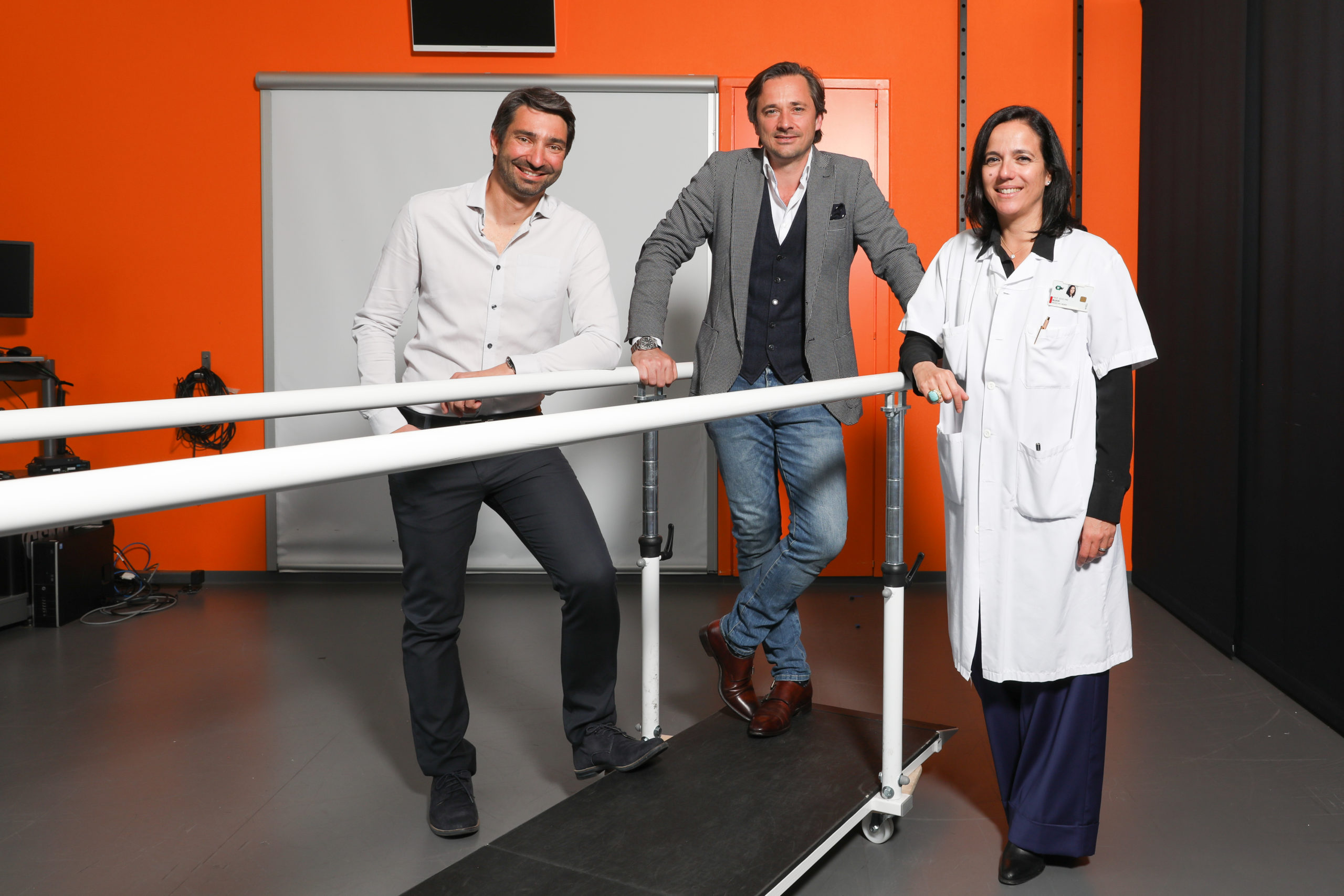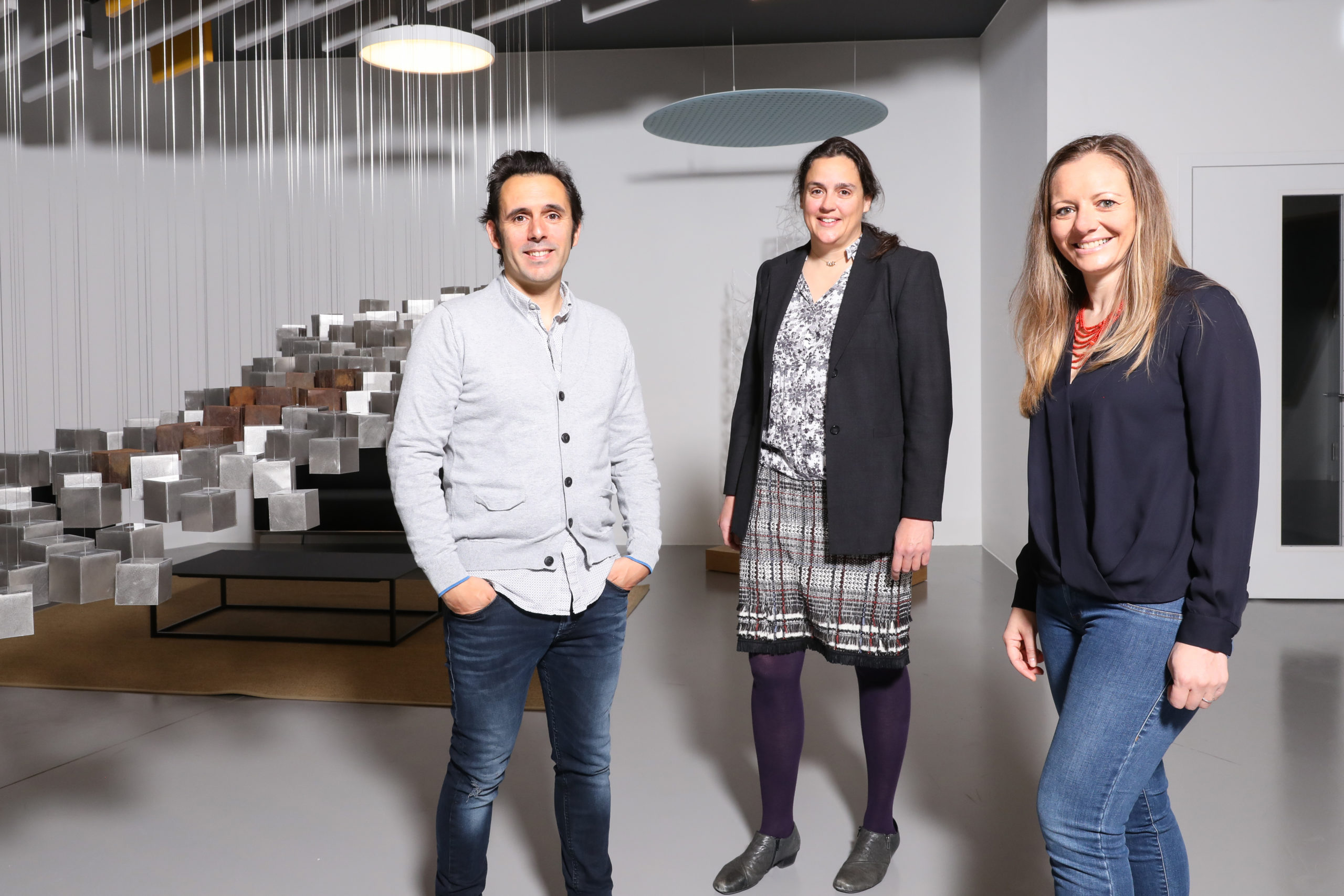Lausanne, 1 June 2021. The Leenaards Foundation has awarded Science Prizes to two research groups based in the Lake Geneva region. The prizes, worth a combined CHF 1.4 million in research funding, will be presented at an online event held on 9 June.
One of the winning projects, led by Prof. Grégoire Courtine, will investigate how to restore lower limb function in paraplegic patients using a brain-spine interface. The second winning group, spearheaded by Prof. Elisa Oricchio, will explore natural ways to prime the immune system to recognize lymphoma tumor cells.
The award ceremony for the Leenaards Foundation 2021 Science Prizes, which will be held online this year and open to the public, will take place at 6pm (CEST) on 9 June (leenaards.ch/rdvscience). The keynote speaker will be Prof. Christian Lovis, head of the Division of Medical Information Sciences at Geneva University Hospitals (HUG), who will share his insights into the possibilities and limitations of AI and big data in health care.

“The aim of our research is to enable paraplegic patients to stand up and walk again, using a combination of neurostimulation therapy and wireless technology to measure and decode brain activity,” says Prof. Courtine, a neuroscientist at Ecole Polytechnique Fédérale de Lausanne (EPFL). The project is a collaborative effort with Prof. Jocelyne Bloch, a neurosurgeon at Lausanne University Hospital (CHUV), and Guillaume Charvet, project manager at CEA-Leti Clinatec (Grenoble, France). The ground-breaking therapy has already been trialed on nine permanently wheelchair-bound patients, who were able to walk again almost unassisted.
“When we walk, we adapt our gait – almost unconsciously – to our intent and to the pace and rhythm of our movement. That’s exactly what we’re trying to replicate for patients, to make it as natural as possible for them,” says Prof. Bloch. The team eventually plans to implant a device – such as the wireless WIMAGINE® implant developed by the Clinatec biomedical research center – on the surface of the cortex at the base of the skull to acquire electrocorticographic (ECoG) signals. “The next step is to decode these motor intent signals coming from the brain and translate them into electrical pulses. These will then be used to stimulate the spinal cord, which will carry the information to the nerves that control the legs,” says Charvet.
There are already less invasive – but also less agile – alternatives to neural implants; for instance, some paraplegic patients wear a wristband that converts voice commands into motion signals. Another promising avenue is the body’s incredible ability to rebuild neural pathways that bypass the injury site. “In the course of our research, we’ve found that nerve tissue has a much greater regenerative capacity than we’d originally hoped. This happens when the lower limbs are stimulated – akin to a reward for the patient’s effort to walk,” adds the research team.

“We’re exploring ways to prime the immune system to eliminate tumor cells naturally, which avoids the unwanted side effects of radiation therapy and chemotherapy,” says Prof. Elisa Oricchio, a cancer researcher at EPFL and head of the prize-winning team. “Our research aims to improve the efficacy of immunotherapy, which is a game-changer in the fight against cancer.”
Prof. Oricchio is working alongside Prof. Caroline Arber, a specialist in hematology and immuno-oncology (CHUV, UNIL, Ludwig Institute for Cancer Research), and Prof. Bruno Correia, who heads the Laboratory of Protein Design & Immunoengineering at EPFL. The focus of the team’s translational research is lymphoma, a type of cancer that hijacks the immune system and is associated with the uncontrolled growth of white blood cells. Researchers in Prof. Oricchio’s lab at EPFL’s School of Life Sciences (SV) have identified a potential new therapeutic target: a mutated form of a protein called cathepsin S, which allows cancer cells to evade detection by the immune system and escape attack by antibodies. Inhibiting cathepsin S reduces tumor growth and makes the cancer cells “visible” to T-cells. Scientists at Prof. Correia’s lab are using 3D modeling to identify the most effective inhibitor.
“Once we’ve developed this inhibitor, the idea is to inject it only among cancer cells,” says Prof. Correia. Successfully inhibiting the protein would enable the body’s T-cells to recognize and destroy the cancer cells. “We’re trialing this new therapy on tumor cells using T-cells taken from patients diagnosed with lymphoma,” says Prof. Arber. “Instead of injecting toxic chemicals into cancer cells to destroy them, we’re using a cathepsin S inhibitor that reveals these cells to the body’s immune system.”
The Leenaards Prize for Translational Biomedical Research is awarded every year to between one and three research projects that bring together researchers from at least two different universities or teaching hospitals in the Lake Geneva region. Projects are selected because they use cutting-edge research to address a clinical problem in an innovative way. This prize also supports translational research projects that combine fundamental and clinical research in order to transform scientific discoveries into medical treatments.
Documents for the press:
www.leenaards.ch/presse
Contact person:
Adrienne Prudente
Head of communications at the Fondation Leenaards
Tel.: 021 351 25 55
Email: communication@leenaards.ch